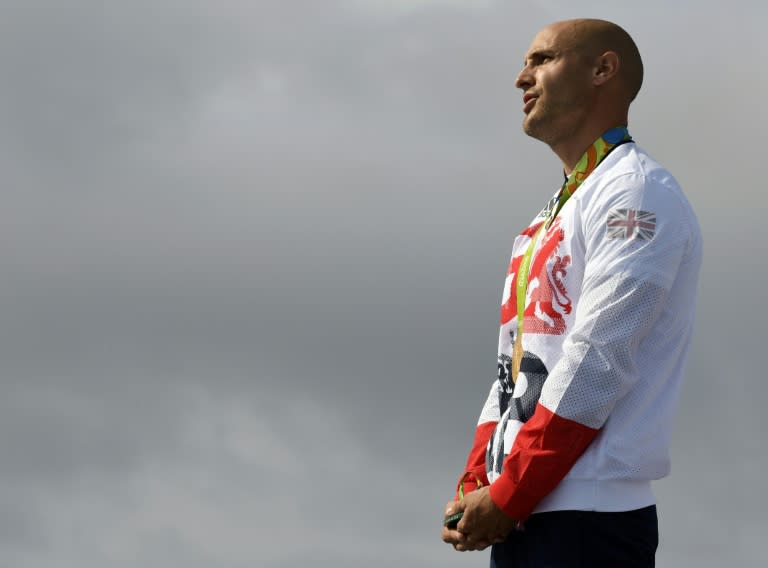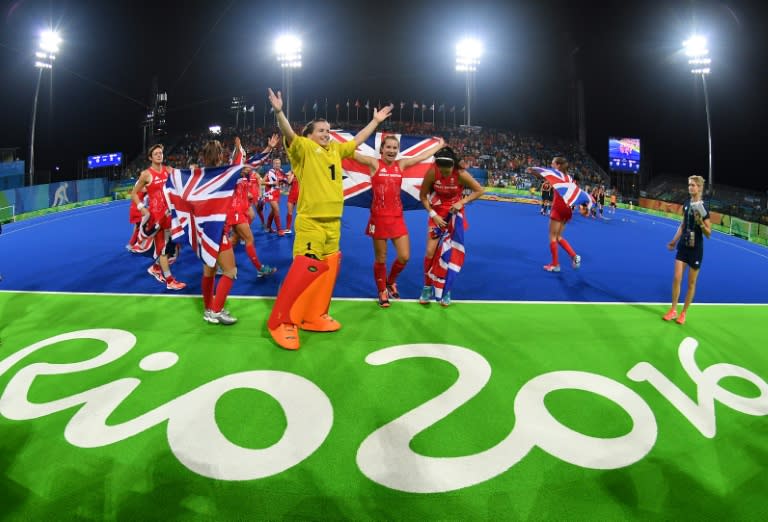Hockey and Whitlock to cash in on Olympics: expert
Field hockey and telegenic gymnast Max Whitlock will be the biggest winners from Team GB's record medal haul at the Rio Olympics, the director of a global sponsorship agency told AFP. However, Chris O'Donoghue, Chief Executive Officer of Mongoose Sports and Entertainment, believes expectations of a major sponsorship deal on the horizon for gymnastics are unlikely to be realised. This despite Whitlock's two golds and four other medals won by British gymnasts -- although O'Donoghue says the individual medallists should reap the financial benefits. "I think generally speaking medallists, especially gold medallists, will do very well, regardless of the sport, will come out both from a commercial and celebrity perspective amazingly well," he told AFP. The rewards might not be huge but would make a big difference, he said. "Even if they get, call it a £10,000 (12,000 euros, $13,000) publicity deal from a local corner shop these things change peoples lives, a few of those is a lot of money," he said. Such a potential windfall would be more than welcome to gold medallists like Joe Clarke and Liam Heath from what can be termed the lower tier sports such as canoeing and kayaking -- which pop up on most people's radars once every four years. Those sort of deals would come on top of the £30,000 tax free for two years allocated to each medallist, no matter the colour. "That sort of money would be hard to come by for an Olympian looking for his first job outside sport," Richard Jefferies, who competed in the canoeing at the 2012 Games, told AFP. "Plus the skills of an athlete don't necessarily translate into those of an office job," added Jefferies, who reached the semi-finals in 2012 but gave up on his dream of the 2016 Games because of an injury suffered in 2014. Heath, who celebrated his 32nd birthday on the eve of his and partner Jon Schofield's silver medal in the men's 200m canoe sprint, told AFP while canoeing is less high-profile than other sports he and his team-mates had it easy compared to the old days. "Ian Wynne won a bronze medal in Athens (2004) but by that time he had run up huge credit card bills," said Heath, who also won gold in the individual 200m kayak race. O'Donoghue, though, says it is a totally different picture in terms of adding commercial funding to the lottery and taxpayers money they receive. "Where the whole process will break down from a commercial perspective is take gymnastics for example," he said. Max Whitlock with two golds medals will thrive but "the sport on the other hand I think will struggle, they just won't pick up a lead sponsor for £250,000 tomorrow." He says gymnastics leaders will be pressuring their commercial teams to bring in the deals, adding that a commercial brand would do well to back gymnastics if they were willing to take a risk. He said a brand "would get massive value out of the likes of British gymnastics." For his money, though, it is field hockey which will be the next big thing vis a vis the crucial gateway to warming any sponsors heart -- television. The thrilling women's final which saw the British beat a Dutch side bidding for a third successive gold medal was watched by 10 million viewers in the UK. "It is often said it is not a great TV sport but whatever the production team did in Rio it was a phenomenal TV sport," he said. "The save by British goalkeeper Maddie Hinch in the first-half of the final is said by many to be the moment of the Games. "That's going somewhere to say that with Mo Farah's success. That is a huge thing, I think hockey is going to be the big winner."




